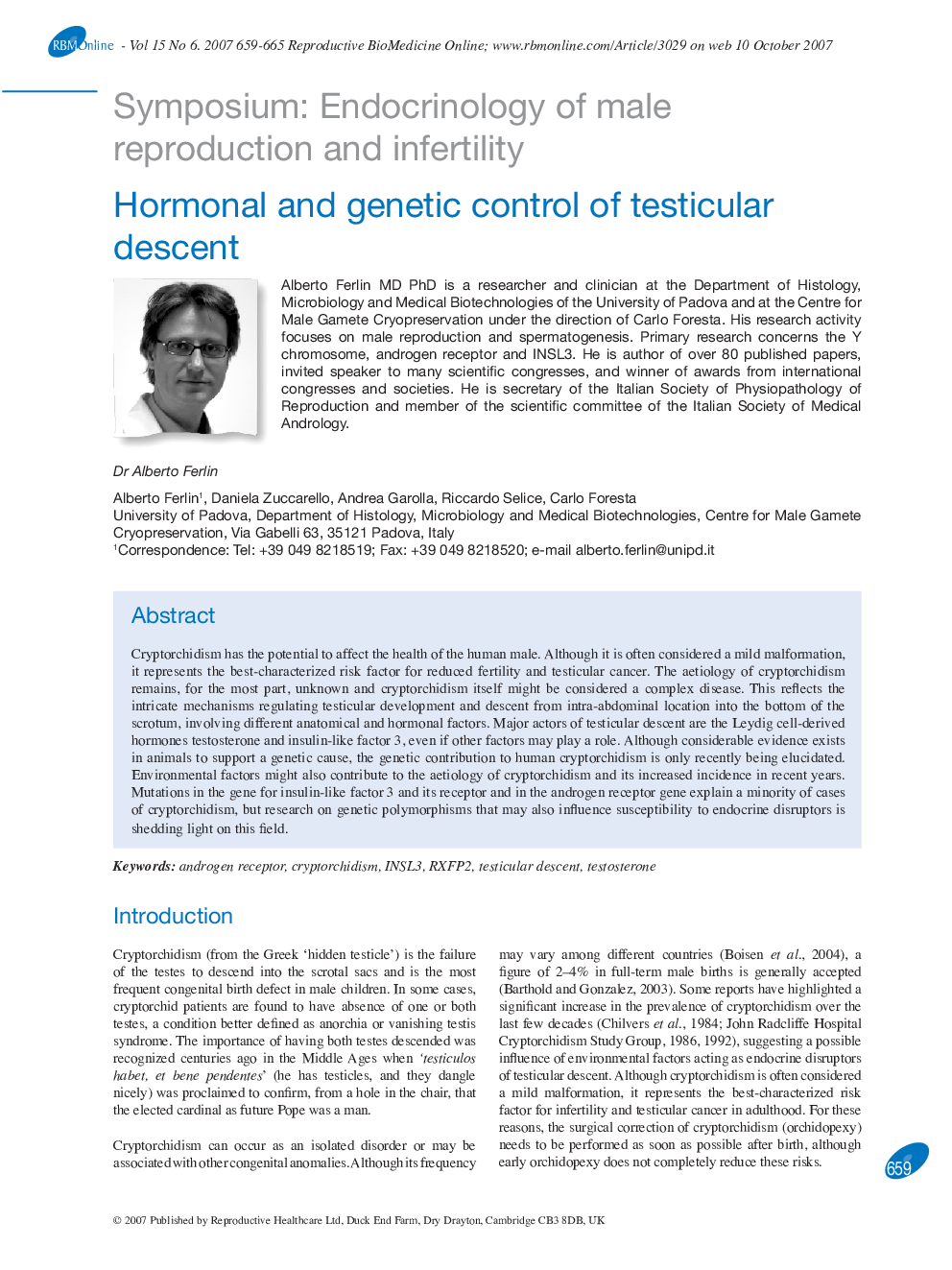| Article ID | Journal | Published Year | Pages | File Type |
|---|---|---|---|---|
| 3972862 | Reproductive BioMedicine Online | 2007 | 7 Pages |
Cryptorchidism has the potential to affect the health of the human male. Although it is often considered a mild malformation, it represents the best-characterized risk factor for reduced fertility and testicular cancer. The aetiology of cryptorchidism remains, for the most part, unknown and cryptorchidism itself might be considered a complex disease. This reflects the intricate mechanisms regulating testicular development and descent from intra-abdominal location into the bottom of the scrotum, involving different anatomical and hormonal factors. Major actors of testicular descent are the Leydig cell-derived hormones testosterone and insulin-like factor 3, even if other factors may play a role. Although considerable evidence exists in animals to support a genetic cause, the genetic contribution to human cryptorchidism is only recently being elucidated. Environmental factors might also contribute to the aetiology of cryptorchidism and its increased incidence in recent years. Mutations in the gene for insulin-like factor 3 and its receptor and in the androgen receptor gene explain a minority of cases of cryptorchidism, but research on genetic polymorphisms that may also influence susceptibility to endocrine disruptors is shedding light on this field.
